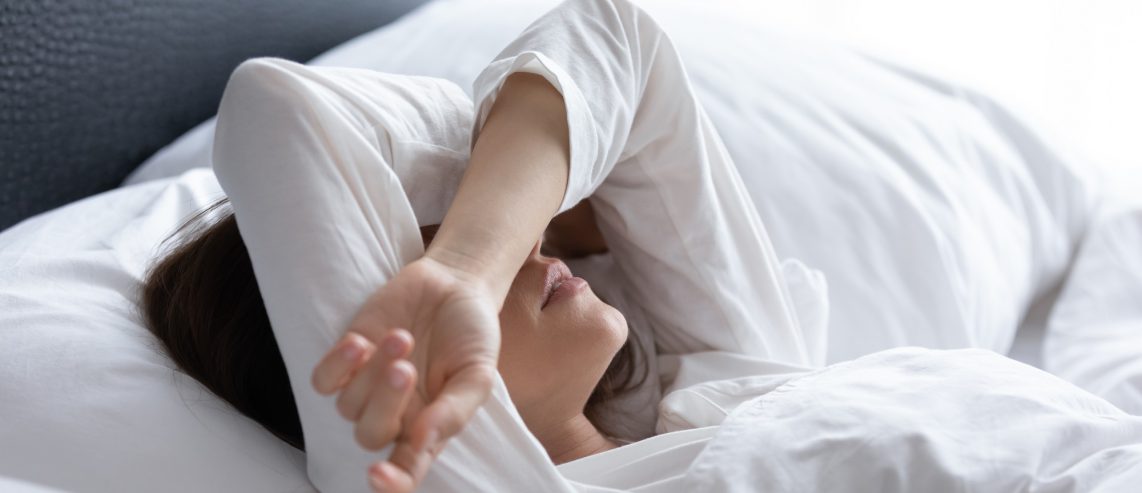When going to bed each night, the goal is to wake up the next morning refreshed and ready to tackle whatever the day may bring. But when the sunrise also brings with it severe aches and pains, it’s hard to get excited about getting out of bed.
Nighttime joint pain can make sleeping difficult, and even when sleep is attained, the quality is less than ideal.
According to a poll by the National Sleep Foundation, people with chronic pain have a much larger sleep debt than those with acute or no pain. Additionally, the same survey showed just 37% of people with chronic pain reported good or very good sleep.
Causes of Joint Pain
Joint pain can result from a number of different conditions, but the most common is arthritis. Arthritis encompasses more than 100 conditions, including:
- Rheumatoid arthritis — An autoimmune disease in which the immune system attacks healthy joint tissue and causes inflammation.
- Osteoarthritis — Deterioration and loss of the cartilage that protects bones and joints.
- Psoriatic arthritis — Which causes internal and external inflammation.
- Septic arthritis — A joint infection.
- Gout — A condition in which acid builds up in a joint and causes inflammation.
Joint pain also may be caused by:
- An injury, such as a sprain, strain, or fracture.
- A viral infection.
- Cancer.
- Tendonitis.
- Bursitis.
Never Miss a Beat!
Subscribe to Our HealthBeat Newsletter!
Thank you for subscribing!
You can now select the specific newsletters you'd like to receive.
You are already subscribed.
Subscribe to more newsletters in our email preference center.
Sorry, an error occurred. Please try again later.
Get Healthy Tips Sent to Your Phone!
Why Do My Bones Ache at Night?
Throughout the day, moving your body and varying your body positions help prevent your joints from becoming sore from being stuck in a position that worsens the pain.
Staying in a poor body position while asleep for a long period of time can also be an issue. Think of all of the times you have awakened wondering how you ended up in such an awkward sleeping position.
How Can I Cope with Joint Pain at Night?
Proper body positioning at night while sleeping can help lessen joint pain. If you suffer from hip bursitis or shoulder pain, sleeping on your side can worsen that pain. Painful wrists? Sleeping with them bent underneath your body or head may cause more aches.
Depending on pain points and sleep preferences, there are best practices to optimize any sleep position.
Below are some sleep tips from the Arthritis Foundation for common pain areas.
Neck Pain
- Keep neck in a neutral position.
- Back sleepers — Add a thin pillow to keep spine aligned.
- Side sleepers — Add a tall pillow under the neck so neck aligns with head.
- Avoid stomach sleep, which forces the head to be propped to the left or right.
Back Pain
- Add a thin pillow underneath head.
- Back sleepers — Add small pillow underneath small of the back and another beneath the knees.
- Side sleepers — Add small pillow beneath curve at the waist and another between the knees.
- Stomach sleeping is not recommended but, if you must, make a slight turn onto the side with the lower leg bent at the hip and knee for support.
Hips
- Back sleepers — Place pillow under knees and under small of back.
- Side sleepers — Lie on hip that is not painful, place at least one pillow between the legs.
Knees
- Back sleepers — Place pillows under knees.
- Side sleepers — Place at least one pillow between knees.
The Importance of Quality Sleep
According to the U.S. Department of Health and Human Services, most adults need seven or more hours of quality sleep per night on a regular schedule.
Benefits of quality, regular sleep include:
- Boosted immune system.
- Reduced stress.
- Improved mood.
- Thinking more clearly.
- Avoiding accidents caused by drowsiness at work or while driving.
When to See a Doctor
If joint pain continuously makes it hard for you to fall or stay asleep, you’re still tired after a full night’s sleep, or your sleepiness during the day makes it difficult to function at work or socially, you should consult your health care provider.
If you have severe joint pain or a chronic condition that interferes with your daily life, talk to your provider about medical treatments or physical therapy that can help make management easier.
UPMC Orthopaedic Care can help. Call 1-866-987-6784 or submit a form online for more information or to make an appointment.
Sources
About UPMC Orthopaedic Care
When you are dealing with bone, muscle, or joint pain, it can affect your daily life. UPMC Orthopaedic Care can help. As a national leader in advanced orthopaedic care, we diagnose and treat a full range of musculoskeletal disorders, from the acute and chronic to the common and complex. We provide access to UPMC’s vast network of support services for both surgical and nonsurgical treatments and a full continuum of care. Our multidisciplinary team of experts will work with you to develop the treatment plan that works best for you. Our care team uses the most innovative tools and techniques to provide better outcomes. We also are leaders in research and clinical trials, striving to find better ways to provide our patients care. With locations throughout our communities, you can find a provider near you.
